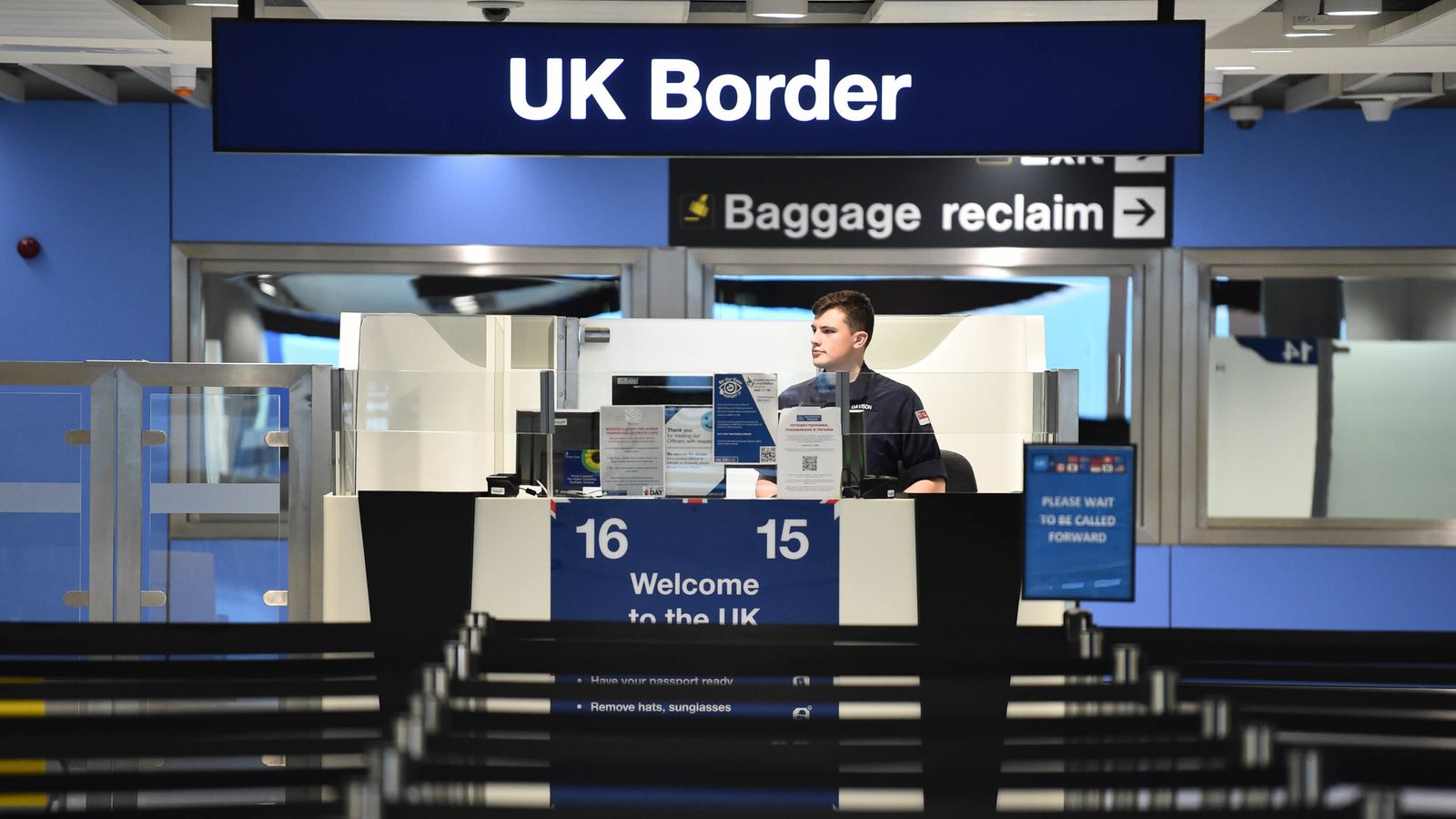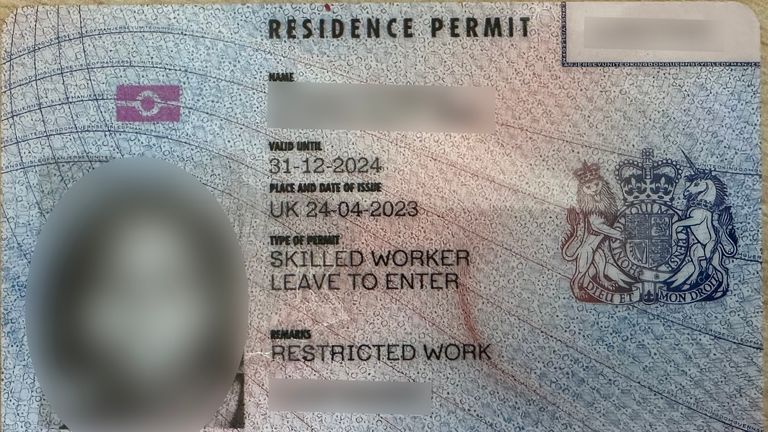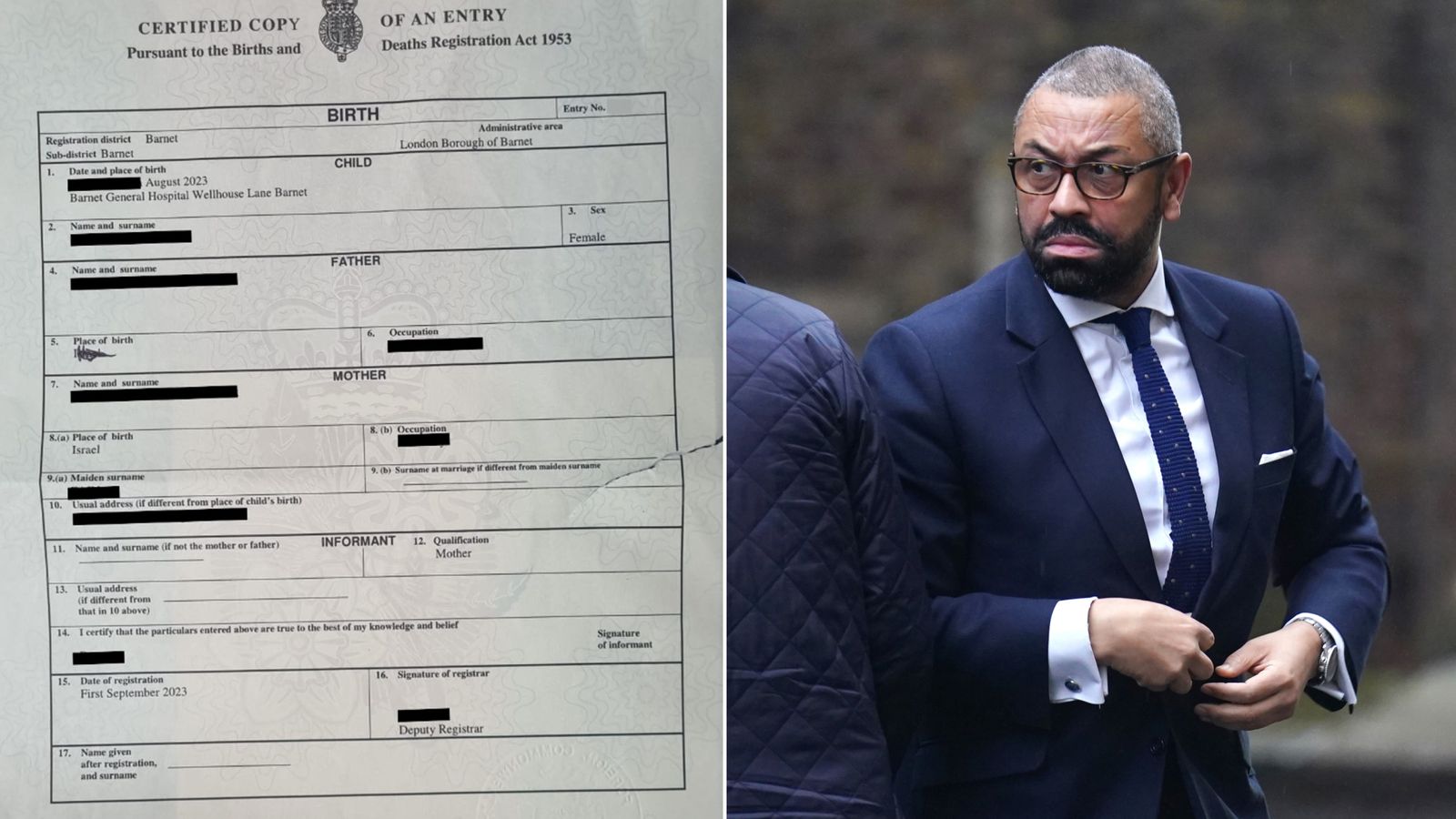Immigration: Asylum backlog in UK hits record high, Home Office figures show


The backlog of asylum claims in the UK has hit a new record high, according to Home Office figures.
A total of 175,457 people were waiting for an initial decision on an asylum application in the UK at the end of June 2023, up 44% at the end of June 2022 and the highest figure since current records began in 2010.
It means the total cost of the asylum has now reached £3.97bn a year – up by £1.85 billion in 2022/23, from £2.12 billion in 2021/22. In 2012/13, the total was £500.2 million.
The number of people waiting more than six months for an initial decision stood at 139,961 at the end of June, up 57% year-on-year from 89,231 and another record high.
In total, there were 134,046 cases being dealt with by the Home Office in relation to the 175,457 people waiting for an initial decision at the end of June 2023.
At the end of July 2023, the number of cases being handled had risen to 136,779 – but the data does not show how many people this related to.
The number of people lodging asylum claims has also risen to a two-decade high.
Some 78,768 applications were made in the year to June 2023 – again, there can be more than one person covered by each application.
This is 19% higher than the previous 12 months, and higher than the European migration crisis, where 36,546 applications were made in a 12-month period.
Advertisement
Stephen Kinnock, Labour’s shadow immigration minister, said: “These new statistics set out in stark terms the complete chaos the Tories have created in the immigration and asylum system.
“The asylum backlog has reached a new record high, with 175,000 people now waiting for decisions. Only 1% of last year’s 45,000 small boats cases have received a decision and the number of failed asylum seekers being returned is also down a whopping 70% since 2010. This is a disastrous record for the prime minister and home secretary.
“With this level of mismanagement, there is very little prospect of reducing the eye-wateringly high bill for hotel rooms for all those left in limbo, currently costing the British taxpayer £6 million a day.”
There has also been a sharp rise in the number of worker visas issued in the past year compared to the previous 12 months.
The new statistics published by the Home Office also show a 63% rise in the number of people coming to the UK on work visas in the year to June 2023, compared to the year to June 2022 – meaning 538,887 arrived to work in the past year.
The number of study visas issued is up 34% to 657,208.
Both these figures include dependents brought into the UK on the programmes alongside the main visa holder.
Read more:
No job for many people arriving in UK on skilled worker visas
Plan to clamp down on illegal migration could spark ‘perma-backlog’
More than 100,000 people have crossed Channel in small boats since records began
This means that 208,295 more people came to the UK on work visas in the 12 months to June 2023 and 165,968 more people entered on study visas.
It comes despite a Tory 2019 manifesto commitment to “bring overall numbers down”.
The government has changed the law to mean that, from January 2024, people on student visas will no longer be able to bring dependents with them.
A sizeable proportion of those entering on work visas are health and care workers, for whom the government created a new pathway in 2020.
Jonathan Gullis, a Tory MP and member of the New Conservatives group, told Sky News: “I think a lot of people will rightly be concerned to see another huge rise in skilled worker visas particularly as the thresholds in education have been reduced, so we will probably be continuing to rely on cheap foreign labour into the future, whenever there is a shortage.
“We should be taking big businesses head on and forcing them to upskill young people and adults looking to retrain to develop our own workforce within the UK.
“Brexit for me was about taking back control of our borders. Not shutting off the world, that would be ludicrous, but looking in our own country and helping young people in places like the Midlands and the North to train up for these skilled jobs and deliver on our pledges from when we were elected in 2019.”
Please use Chrome browser for a more accessible video player
9:47
Skilled worker visa scam
Marley Morris, the Institute for Public Policy Research’s associate director for migration, trade and communities, said: “The government is still far-off from getting on top of the asylum backlog. While the Home Office is bringing down the ‘legacy backlog’ of older cases, this is being offset by new applications from recent arrivals.
“Moreover, many of the most recent decisions by the Home Office are withdrawals rather than grants or refusals. In the long run, this could backfire on the government, as people whose applications are withdrawn end up being pushed underground or make fresh asylum claims.
“Once the government implements the Illegal Migration Act, this could make matters even worse. Even if the Rwanda scheme is ruled to be lawful by the Supreme Court, it is likely that the number of arrivals will outpace the number of removals, creating a growing ‘perma-backlog’ of asylum seekers trapped in limbo. This could cost the Home Office billions each year.”
A Home Office spokesperson said: “The unacceptable number of people risking their lives by making these dangerous crossings is placing an unprecedented strain on our asylum system.”
According to the Migration Observatory, the Home Office’s figures showed that only 41% of asylum seekers arrived by small boats – down on the previous year when it was 45% – but the overall number of applications rose.
The government spokesperson added: “Our priority is to stop the boats, and our Small Boats Operational Command is working alongside our French partners and other agencies to disrupt the people smugglers.
Click to subscribe to the Sky News Daily wherever you get your podcasts
“The government is going even further through our Illegal Migration Act which will mean that people arriving in the UK illegally are detained and promptly removed to their country of origin or a safe third country.”
Dr Peter William Walsh, senior researcher at the Migration Observatory at the University of Oxford said: “Political debate has been hyper-focused on small boats, 90% of whom claim asylum. Yet in the year to June 2023, small boat arrivals made up only 41% of asylum claims – the remainder will have arrived in the UK via other routes.”

